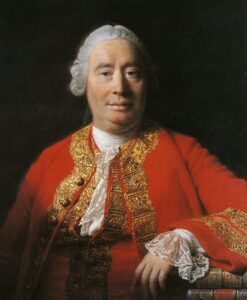Presentism and Its Evil
Those who don’t learn from their history are doomed to repeat it.
By: Leesa Donner | July 18, 2020 | 339 Words

burnt book, burnt music (Brian van der Brug Los Angeles Times via Getty Images)
As the radical left tries to remove American history piece by piece by taking down statues, those who care about logic and reason find themselves seeking a voice in the current madness. so far, this more or less silent group is either at a total loss for words or doesn’t want to speak up and confront people.
How can we understand historical men and women if we remove the culture and conditions in which they lived? History – all of it – guides us toward making better decisions for the future. Tearing down statues takes us down the road to a dangerous philosophy known as presentism.
What Is Presentism?

Portrait of David Hume (Photo by DeAgostini/Getty Images)
Presentism is defined as an “uncritical adherence to present-day attitudes, especially the tendency to interpret past events in terms of modern values and concepts.” This takes people like George Washington and Thomas Jefferson and judges them by today’s social standards instead of those of their times.
The culture of our Founders was naturally different from ours. In 1866 J. Ewing Ritchie published the following in a biography: “Nothing is more unfair than to judge a statesman of a past day by the light of the present.”
It is impossible to learn from the past if we are ignorant of it. Pretending like the parts we don’t like didn’t happen won’t change what happened. This is made worse through the widespread use of social media, a political climate that includes constant elections, and the 24/7 news cycle. When one is so caught up in the present, it becomes a difficult task to recognize the worth of the past.
Judging historical figures through a modern lens may be a natural human behavior. In 1739, the Scottish philosopher David Hume wrote, “Men are not able radically to cure, either in themselves or others, that narrowness of soul, which makes them prefer the present to the remote.” However, just because something is natural doesn’t make it beneficial.
















